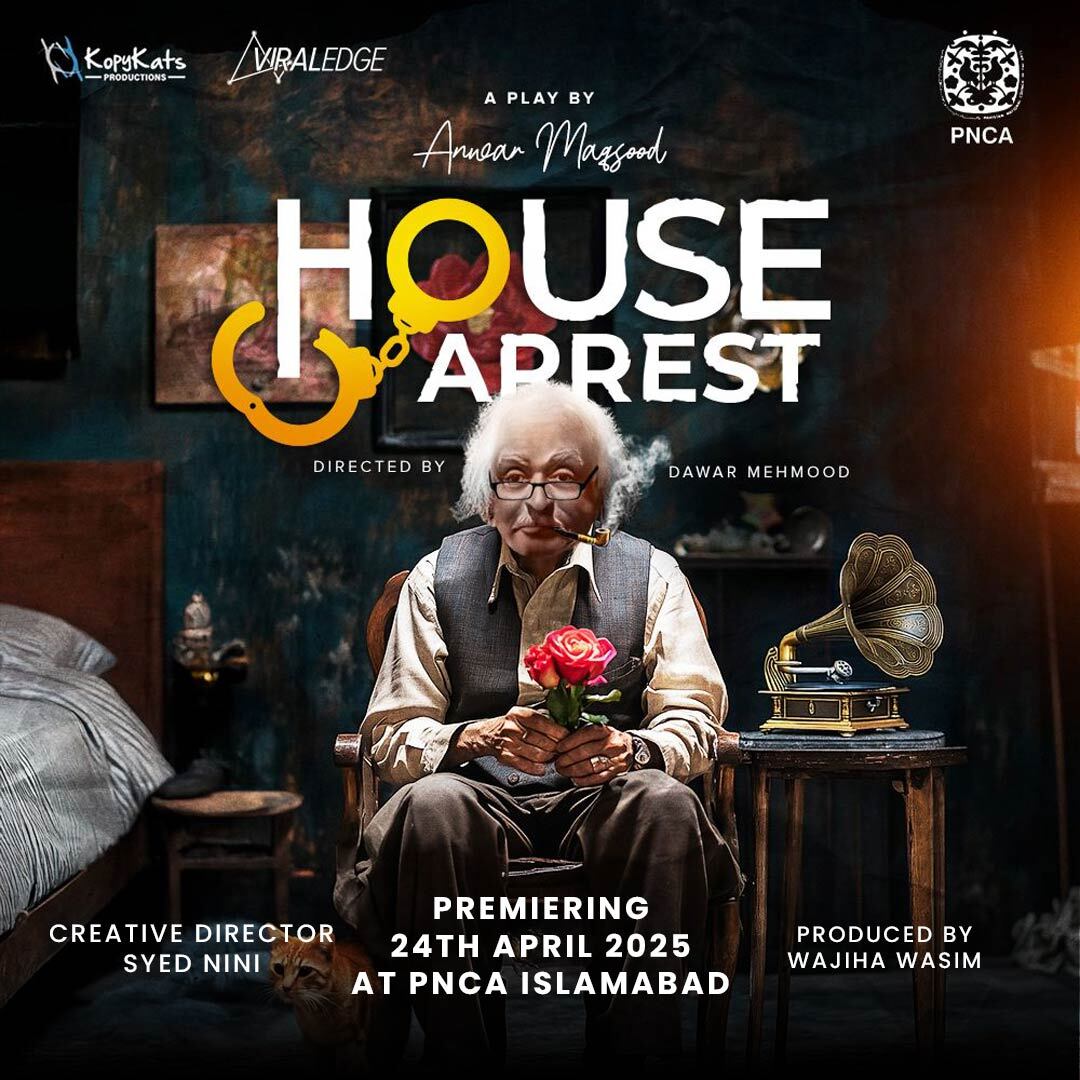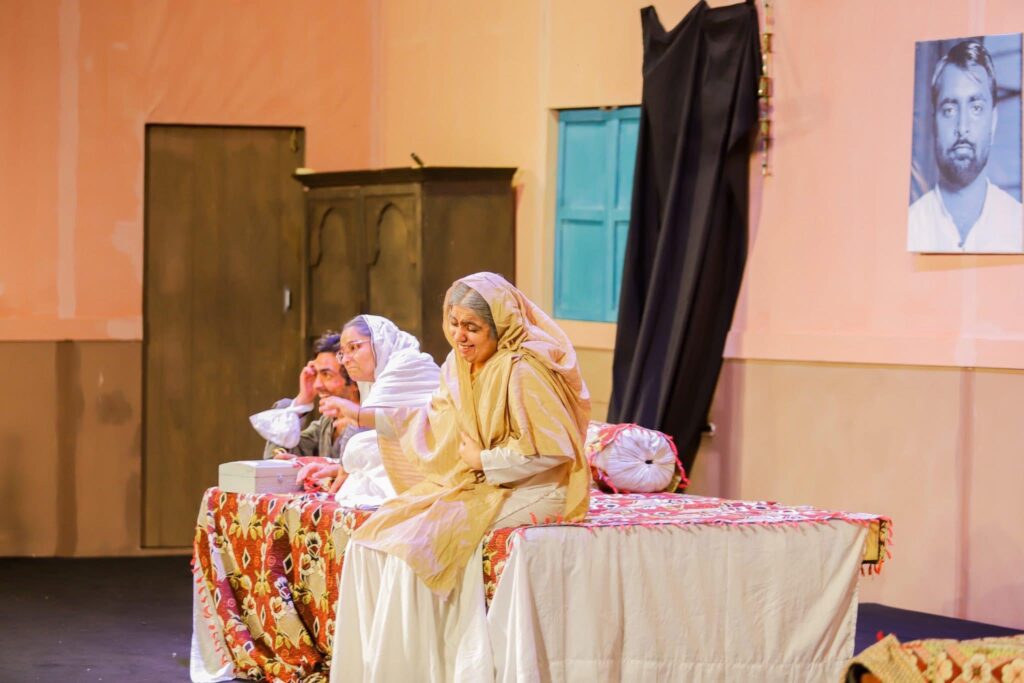Theatre
A Satire That Hit the Heart

In a time where entertainment is often reduced to screens and scrolling, House Arrest by Anwar Maqsood breathes life back into the stage. Performed at the IBA City Campus Karachi, this political satire drew in crowds not just for its name, but for the promise of something meaningful beneath the laughter.
The play confined to one room, presents two elderly women seemingly forgotten by time and family. Their world is at a standstill, and memories are the only sustenance in the confines of the four walls that haven’t seen visitors for a long time. The title, House Arrest, couldn’t be more appropriate to their situation.
On the surface, it appears to be a domestic drama, an ongoing conflict between the old women and their materialistic son and daughter-in-law. But beneath that lies a scathing, satirical reflection of a broader reality. The obsession with ownership, the desperation for control and the pettiness of egos. In their arguments over a name on a gate, we see our own societal hierarchies, our personal wars for validation, and the illusion that money and power equals peace.

The brilliance of Anwar Maqsood lies in his layers. As the women remain ‘arrested’ in their own home, the audience is introduced to a parade of visitors: a robber, a retired judge, a former police officer and a disillusioned hockey player. Each is symbolic. Each a thread in the unraveling fabric of the society portrayed in the play. Together, they paint a bleak but bitingly humorous portrait of a nation where the powerful exploit, where the system has failed, and the common citizen is left caught in the crossfire.
The house isn’t just their prison. It’s a metaphor for the country. Its locked doors echo with stories of betrayal, of promises broken in the name of reform. And as the characters weave in and out, bringing their chaos and confessions, we’re left with an uncomfortable truth: perhaps we are all, in some way, under house arrest.
Yet, despite the weight of its message, House Arrest never feels preachy. Anwar Maqsood’s wit is razor-sharp, his humour disarming. He allows us to laugh before we realize what we’re laughing at.
One of the play’s most powerful moments comes in the form of a domestic brawl a comedic yet deeply moving scuffle between the women and their daughter-in-law. The movements bordering on gymnastics are brilliantly performed by the cousin and daughter-in-law. It’s chaotic, yes. But also cathartic. Because in that moment, the tension breaks. The truths spill out. And we are reminded why theatre remains such a vital art: it makes us feel and think.
The play had it’s humorous moments with laughter resonating in the hall unabashedly. The acting of the characters was superb, specially the main characters Shameen Tariq who played the role of Bee Amma and Raisa Raisani who played the role of Nasreen. But one felt the lack of cohesion in the presentation here and there. Was it due to the meddling of strong outside factors and censorship perhaps? Overall the play was a much needed injection for the Karachi crowd bring to mind the adage laughter is the best medicine.
